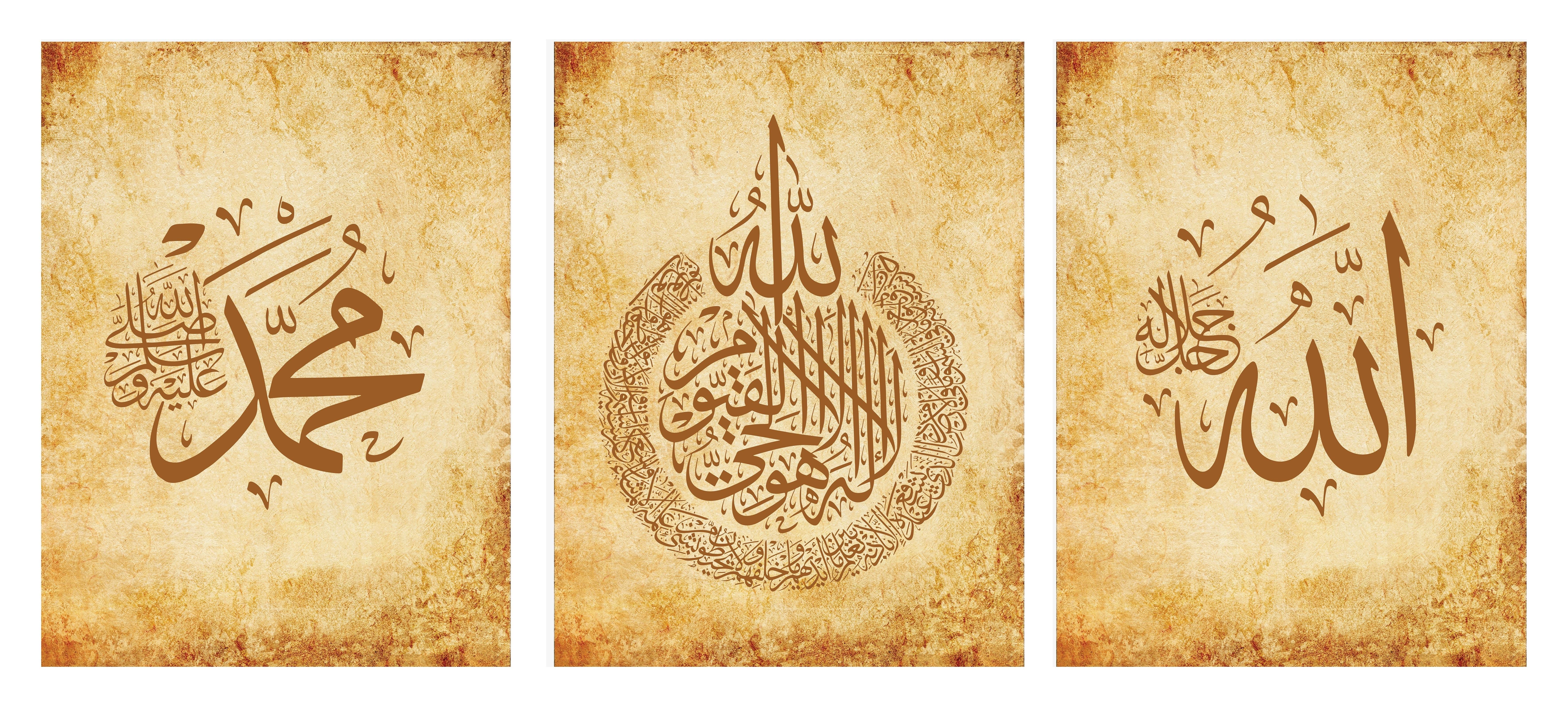
Allah (SWT) perfected the religion of Islam more than a thousand years ago, and the Angel Jibreel first revealed His divine words to the Prophet Muhammad (PBUH) some 1,400 years ago. In the many years since, Islam has grown to become the second biggest religion in the world with 1.8 billion followers worldwide.
Knowing the history of Islam is a fundamental part of understanding Allah’s (SWT) teachings and how so many people came to be enlightened by His wisdom. With such a long history, it’s easy for dates to get muddled, but if you’re seeking clarification of exactly when did Islam begin, we will explain the history below.
Islam is broadly considered to have been founded when the Angel Jibreel descended upon the Prophet Muhammad (PBUH) at Mount Hira in 610 A.D.
The Prophet Muhammad (PBUH) was the final of Allah’s (SWT) 25 chosen prophets mentioned in the Qur’an, and it is his story that many Muslims associate with the beginning of Islam, therefore, it’s essential that his story is understood in relation to when Islam began.
The Prophet was born in 570 A.D. in Mecca, Arabia. He married Khadija, a wealthy widow who was widely respected among the Meccan community.
The city of Mecca held control of all the major trade routes that connected Arabia to Yemen and Syria. The city was prosperous as a result of its control over trade. At the time, Meccans were polytheistic and they believed that a number of different gods protected their trade routes.
Muhammad was conflicted about his beliefs and often had visions and heard voices. To clear his mind, he frequently visited a cave in Mount Hira, a mountain on the outskirts of Mecca. He would go there to meditate, but in 610 A.D., as he was meditating, a spirit who identified himself as Angel Jibreel descended upon him.
The night Angel Jibreel visited Muhammad (PBUH) is called Laylat al-Qadr, or the Night of Power. During this encounter, the Angel Jibreel revealed the first verses of the Qur’an (the direct words of Allah (SWT)) to Muhammad (PBUH). He was confused and at first was unsure about what he had experienced – he did not understand it. Over time, though, the words spoken by the angel resonated with Muhammad (PBUH) and he realised that the visions he had seen and the voices he had heard were Allah (SWT), and at this moment, he experienced true clarity.
This was further cemented when the angel demanded Muhammad (PBUH) recite the Qur’an, and although Muhammad (PBUH) could not read or write, he was able to recite the words he had heard perfectly.
The Angel Jibreel informed Muhammad (PBUH) that he was the final of Allah’s (SWT) 25 prophets as mentioned in the Qur’an, and he was designated as a messenger to spread the words of the one true religion. There were prophets before Muhammad (PBUH), but Allah (SWT) revealed his teachings to Muhammad (PBUH) in their entirety.
The exact date of the Night of Power is unknown, but we do know that it was in the ninth month of the lunar year. Some believe it fell on the 27th night of the month, and others believe it fell on any of the other odd nights of the month.
Following the Night of Power, Muhammad (PBUH) informed his wife of what he had heard and how he felt contentment and solace after reciting the Qur’an. Khadija was supportive of Muhammad (PBUH), but the rest of Mecca was not. They believed that his words would anger their polytheistic gods and their prosperous trade routes would suffer as a result. The people did not act beyond harsh words because at the time, Muhammad’s (PBUH) wife held a great deal of influence over Mecca, and his uncle, Abu Talib, was the Banu Hashim clan chief. This afforded Muhammad (PBUH) relative protection, but in 619 A.D., both Khadija and Abu Talib passed away. This became known as the year of sorrow, and following his mourning, Muhammad (PBUH) was left exposed to attacks from the Meccan people.
Over the course of the nine years from Laylat al-Qadr to the year of sorrow, Muhammad (PBUH) had been receiving more messages from the Angel Jibreel and had amassed a small following, all of whom were now vulnerable to physical persecution from the Quraysh (the tribe who controlled Mecca).
In 622 A.D., the nearby city of Medina had learned of Muhammad (PBUH) and invited him to try and defuse the conflict between the Medina Jews and Arabs. They thought him best placed to do the job as he was completely unbiased. In return for his service as a neutral mediator, Medina promised Muhammad (PBUH) that both he and his followers could reside there and freely practice their beliefs without the risk of persecution.
By this time, Muhammad (PBUH) and his Meccan followers were under constant attack from the Quraysh, so he accepted Medina’s invitation and relocated. This is called Hegira. During his time in Medina, Muhammad (PBUH) continued to receive visits from the Angel Jibreel, and he would share those words with his followers. His following continued to grow and word spread far and wide.
Whilst Muhammad (PBUH) lived in peace in Medina, Mecca was his home and he was determined to go back there.
In 628 A.D., six years after leaving Mecca, Muhammad (PBUH) believed it was time to go back. He began on his journey back, but the Quraysh had heard that he was making a return and intercepted him on his way. To Muhammad’s (PBUH) surprise, the Quraysh did not approach him with violence or anger. Instead, they told Muhammad (PBUH) that they respected the religion of Islam and would not object to Muhammad (PBUH) and his followers returning to Mecca. Both Muhammad (PBUH) and the Quraysh agreed to the Hudaybiyyah treaty, and Muhammad (PBUH) returned to Mecca in peace.
In 632 A.D., Muhammad (PBUH) passed away. In his 23 years of prophecy, Muhammad (PBUH) was visited by the Angel Jibreel and the teachings of Allah (SWT) were revealed over a number of years. In addition to Allah’s foundations of Islam (Shahada, Salat, Zakat, Sawm and Hajj), Prophet Muhammad (PBUH) designated two celebrations for Muslims: Eid al-Fitr and Eid al-Adha.
The Hadith is a collection of Prophet Muhammad’s guidance and practices which many Muslims take heed from as part of their faith. It forms a part of Islamic law and is second in importance only to the Qur’an.
In the 1,400 years since the revelation, Islam has grown to be the second-largest religion in the world, with Muslims living in every corner of the globe and forming integral parts of communities everywhere.
Copyright © 2024 UKIM All Rights Reserved.
UK Registered Charity Since 1962
Charity Registration No. 250275



